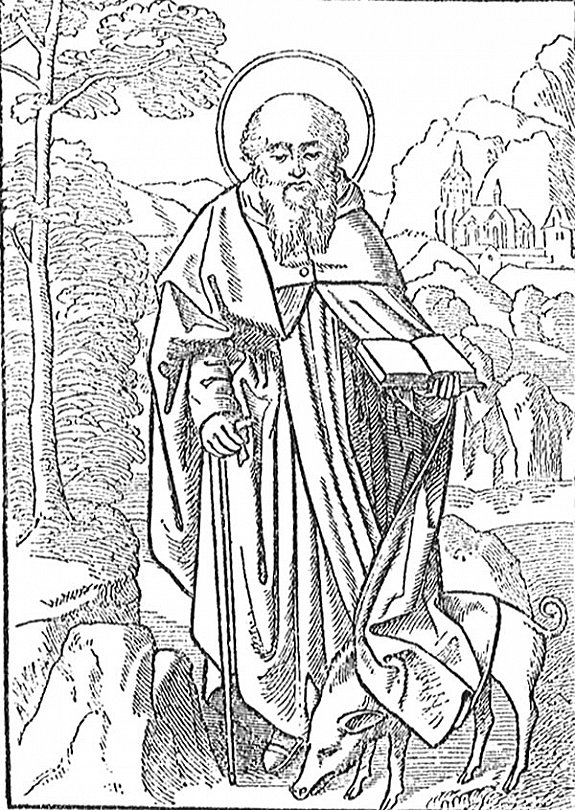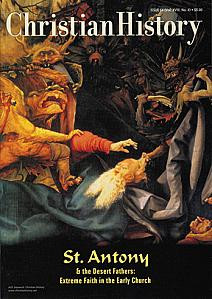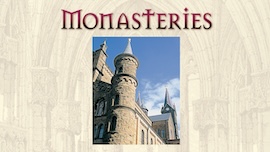Antony of Egypt Inspired a Powerful Monastic Movement

Antony was the most famous Egyptian hermit of the early church.
ANTONY WAS THE SON of Christians in Coma, near Egypt’s southern border. His parents kept him somewhat secluded from the world, shielding him from the evils of his day. When he was eighteen his mother and father died, leaving him with one hundred and twenty acres and a young sister to care for.
Six months after the deaths of his parents, Antony was meditating on the sacrificial lives of the early Christians as he walked to church. They had left everything to follow Christ, he knew, and consequently could look forward to great rewards in heaven. As he entered church, he heard someone reading Christ’s words to the rich young ruler: “If you would be perfect, go sell all you have and give it to the poor; then come follow me and you shall have treasure in heaven.”
Antony took the words literally. At once he sold his possessions, making provision for his sister, and distributed the rest of the money to the poor. He became a hermit, first in his own town and gradually in more remote places.
There had been hermits before him, but he surpassed them in fame. Through ascetic practices—fasting, holding vigils, wearing uncomfortable clothing, and neglecting his body—he hoped to overcome temptation. Athanasius, patriarch (head of the church) of Alexandria, wrote a Life of Antony which describes demonic attacks that the solitary saint overcame. It also told of a vision of heavenly light which empowered Antony and silenced the devils.
Try as he would, though, Antony could not escape the intrusion of others. Hermits learned of his whereabouts and sought his advice. Common people asked for his prayers. He healed the sick, counseled the suffering, cast out demons, and preached. In 311, during a great persecution, Antony traveled to Alexandria and stood in court with accused Christians, hoping to attain martyrdom himself. In this he was disappointed and went back to the desert.
Late in his life, while Antony was living in solitude near the Red Sea, Athanasius asked him to come to Alexandria to speak against the heresy of Arianism. Antony did. He had only a year left to live.
When Antony realized he was dying, he asked two monks to bury him in a secret place, afraid that his remains would be revered. He died on this day, 17 January 356, at the ripe age of either 104 or 105. After his death, his fame continued to spread because of Athanasius’s Life, which inspired ascetic practices and the growth of monasticism wherever it was read. Eventually, it contributed in part to the conversion of Augustine of Hippo.
—Dan Graves
----- ----- -----
For more on Antony, see Christian History #64, St. Antony & the Desert Fathers
And look at a video of modern experience in Monasteries at RedeemTV
Monasteries can be purchased at Vision Video








